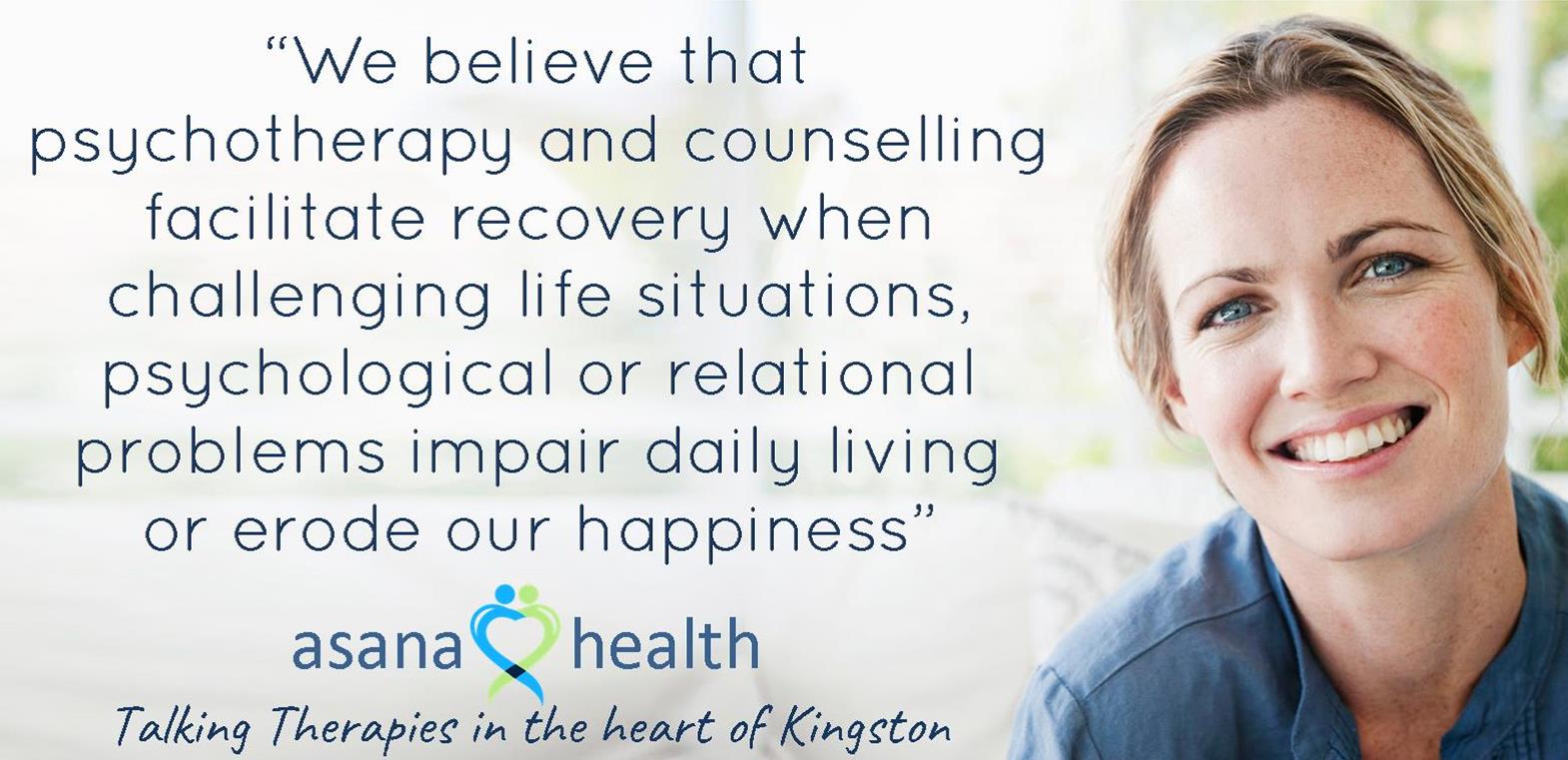
About Talking Therapies
Many people use Talking Therapy as a solution for a crisis, but it’s helpful to see a professional for regular, everyday issues too. Research shows that talking to a therapist can positively rewire the brain over time. Experts also say the practice can be transformative even if you don’t have a mental health condition: Therapists can help you work through acute life stressors, help you cope with major life changes or just offer solutions for a calmer state of mind.
Talking Therapies can help you work out how to deal with negative thoughts and feelings and make positive changes. They can help people who are feeling distressed by difficult events in their lives as well as people with a mental health problem. Talking Therapies are called a confusing mix of names, but behind every technical term is a way of working with people that can help. Therapies are divided into several broad types that include Psychotherapy and Clinical Psychology.
The Mental Health Foundation has produced a range of publications containing high-quality, evidence-based information on a variety of mental health topics. They are free to download, and their most popular publications are also available to buy in print.
The Counsellors, Psychotherapists and Clinical Psychologists at Asana work from a variety of Theoretical Approaches with their clients. These therapies range from the type of Psychoanalysis, originally practiced by Sigmund Freud and later developed into other forms of analytic psychotherapy by his pupils, through Humanistic Psychotherapy (based on personal growth and self-development) to the Behavioural Therapies used for dealing with specific phobias and anxieties. However, there is evidence that the relationship between the counsellor and the client is more important than the approach the therapist uses.
For overview photographs and specialisms of all our Counsellors, Psychotherapists and Clinical Psychologists, click here.

Clinical Psychology
Clinical psychology is an integration of science, theory and clinical knowledge for the purpose of understanding, preventing, and relieving psychologically based distress or dysfunction and to promote subjective well-being and personal development.
Clinical psychology is a broad branch of psychology that focuses on diagnosing and treating mental, emotional, and behavioral disorders. Some of the more common disorders that might be treated include learning disabilities, substance abuse, depression, anxiety, and eating disorders.
Clinical psychologists help people make positive changes to their thinking and behaviour. They aim to understand their clients' thoughts and actions so they can work with them to manage or overcome their psychological distress and improve their well-being.
Treatments may include Cognitive Behavioural Therapy (CBT) and Mindfulness based psychological therapies.
Further information is available through the website of the British Psychological Society.
Therapists

Psychotherapy
The United Kingdom Council for Psychotherapy offers a very effective definition of psychotherapy as, "The provision, by a qualified practitioner, of a formal and professional relationship within which patients/clients can profitably explore difficult, and often painful, emotions and experiences. These may include feelings of anxiety, depression, trauma, or perhaps the loss of meaning of one's life. It is a process that seeks to help the person gain an increased capacity for choice, through which the individual becomes more autonomous and self-determined. Psychotherapy may be provided for individuals or children, couples, families and in groups".
In addition, psychotherapy often serves to promote personal growth and self-actualisation. So many people choose psychotherapy as a form of personal development; to gain a better understanding of themselves; how they interrelate with others; to find inner peace; and to fulfil their potential. All these are valid reasons to start psychotherapy to help explore, understand and change what is happening in your life.
For overview photographs and specialisms of all our Counsellors, Psychotherapists and Clinical Psychologists, click here

CBT - Cognitive Behavioural Therapy
Cognitive Behavioural Therapy (CBT) is a form of psychotherapy that focuses on changing the way you think about yourself and the world around you. CBT is focused mainly on the present and helps you to create healthy and realistic alternatives to current problematic thoughts, emotions and behaviours. It is a structured approach that helps you discover the source of your problem and enables you to think and act in more appropriate ways.
CBT offers proven techniques for solving and treating a variety of conditions and problems. These include: anxiety, depression, panic, phobias (including agoraphobia and social phobia), stress, bulimia, obsessive compulsive disorder, post-traumatic stress disorder, bipolar disorder and psychosis. CBT may also help if you have difficulties with anger, regularly reacting to the words or actions of others, a low opinion of yourself, or physical health problems, like pain or fatigue.
CBT can help you to make sense of a problem or problems that seem to overwhelm you by breaking them down into smaller parts. This makes it easier to see how they are connected and how they affect you. These parts are:
A Situation - a problem, event or difficult situation. From this can follow:
Thoughts
Emotions
Physical feelings
Actions
Each of these areas can affect the others like a 'vicious circle' that can make you feel worse and even create new situations that may mimic health problems. How you think about a problem can affect how you feel physically and emotionally. You can start to believe quite unrealistic (and unpleasant) things about yourself. This happens because, when we are distressed, we are more likely to jump to conclusions and to interpret things in extreme and unhelpful ways. CBT can help you to break this vicious circle of altered thinking, feelings and behaviour. When you see the parts of the sequence clearly, you can change them - and so change the way you feel.
CBT is one of the most effective treatments for conditions where anxiety or depression is the main problem. It is the most effective psychological treatment for moderate and severe depression and is as effective as antidepressants for many types of depression.
CBT is not a quick fix. A good therapist is like a personal trainer who will pace your sessions and advise and encourage - but cannot 'do' it for you. You decide what you do together, so you stay in control. The therapy aims to get you to a point where you can 'do it for yourself'. Your CBT skills can become life skills that you can continue to practise as required - even when you're feeling better.
Therapists

More about EMDR Eye Movement Desensitisation and Reprocessing
"EMDR is not only highly effective, it is also THE most effective trauma treatment".
EMDR stands for Eye Movement Desensitisation and Reprocessing. It is a unique, powerful therapy that helps people recover from problems triggered by traumatic events in their lives. It stops difficult memories causing so much distress by helping the brain to reprocess them properly. EMDR is recognised by the World Health Organisation (WHO) and the National Institute for Health and Care Excellence (NICE).
EMDR is best known for treating post-traumatic stress disorder (PTSD) and it can also help with a range of mental health conditions in people of all ages.
EMDR therapy is a phased, focused approach to treating traumatic and other symptoms by reconnecting the client in a safe and measured way to the images, self-thoughts, emotions, and body sensations associated with the trauma, and allowing the natural healing powers of the brain to move toward adaptive resolution.
Video: Introduction to EMDR Therapy Learn about how EMDR therapy works, what it is like, and how widely it is recognized. EMDR therapists discuss how EMDR therapy works and the feedback they receive from clients.
Therapists

Other kinds of Talking Therapy
Different talking therapies are called a confusing mix of names and some therapies have several names. Don’t let the jargon put you off! Behind every technical term is a way of working with people that is designed to help. Therapies are usually divided into several broad types. But even therapists who offer the same kind of therapy will have a slightly different way of working from each other because all therapists have a personal style as well.
The Therapies listed below are just some of the Theoretical Approaches used by our therapists and each one has a link to more information about it. These are by no means exhaustive, but are offered as additional outline information for clients. Typically, therapists may use a combination of techniques depending on the needs of their client. Other approaches are more specific. The individual profile of each of our Therapists provides more in depth information about their qualifications, experience and current area of expertise or focus.
Psychodynamic Psychotherapy/Counselling
Solution Focused Brief Therapy

List of Issues that can be addressed
If you would like more information about some of the conditions listed below, The British Association of Counselling and Psychotherapy has a comprehensive and user friendly 'What Therapy Can Help With' page. Click here to access it.
Please be assured that the team of therapists at Asana have a wealth of experience of working with these conditions, and more, between them. Indeed most have specialisms in certain conditions and will refer Clients to each other as the need arises. Some therapists also have experience in medico-legal assessment and reporting within their field of specialism and are on the register of expert witnesses.
Many of the conditions listed below also have links directly to other organisations where further in depth information on that particular condition can be found. Just click on the conditions which are in bold text.
- Abuse
- Acquired brain injury
- Addictions
- ADHD or Attention Deficit Hyperactivity Disorder
- Adoption
- Affairs and betrayals
- Aging
- Alcohol or substance abuse
- Anger
- Anorexia
- Anti-social personality disorder
- Anxiety
- Attachment
- Autism spectrum disorders
- Avoidant personality disorder
- Bereavement
- Binge eating disorder
- Bipolar disorder
- Borderline personality disorder
- Body Dysmorphic Disorder
- Bulimia
- Bullying
- Cancer
- Career Issues
- Carer difficulties
- Child & adolescent mental health
- Chronic pain
- Complex family needs
- Depression or disabling sadness
- Deprivation in early childhood
- Disability
- Discovering a sense of meaning and purpose
- Dissociation
- Dissatisfaction with an aspect of your behaviour
- Dissatisfaction with your current way of being male or female
- Divorce support
- Domestic violence
- Eating disorders
- End of life
- Family issues
- Feelings of emptiness
- Feelings of loss
- Gaining a better understanding of yourself
- Hearing voices
- Hoarding
- Infertility
- Intellectual disability
- Learning difficulties
- Loneliness
- Low self-confidence
- Low self-esteem
- Manic depression (Bipolar)
- Marital difficulties
- Mental health difficulties
- Miscarriage
- Narcissistic personality disorder
- Obsessional thoughts
- Obsessive compulsive disorder
- Pain management
- Panic attacks
- Paranoia
- Passive agressive behaviour
- Personality disorders
- Phobias
- Postnatal depression
- Post traumatic stress disorder
- Pregnancy and childbirth
- Psychosis
- Redundancy
- Relationship difficulties
- Schizophrenia
- Sexual abuse
- Sexual issues
- Sexuality
- Self harm
- Spirituality
- Stress
- Suicidal thoughts
- Transitions
- Trauma
- Work related issues

More about ADDICTIONS
If you have an addiction, you're not alone. According to the charity Action on Addiction, 1 in 3 people are addicted to something.
Addiction is defined as not having control over doing, taking or using something to the point where it could be harmful to you. The strain of managing an addiction can seriously damage your work life and relationships. Some addictions can have serious psychological and physical effects.
Addiction is most commonly associated with smoking, drugs, alcohol and gambling, but it's possible to be addicted to just about anything, including: sex, work, shopping, food and solvent abuse.
Worryingly, a major and growing area affecting children and adults is Digital Addiction, including - mobile phones, social media, video gaming, online gambling and internet surfing.
Even more concerning is the 'Persuasive Design' technology (or algorithms) built into apps, video games, etc. that specifically targets areas of the brain responsible for forming habits and addictions. The WHO (World Health Organisation) now recognises video gaming addiction as a mental health disorder. Even the NHS has launched a gambling addiction clinic for children.
There are many reasons why addictions begin, such as: peer pressure; habits getting out of control; a need to block unpleasant issues, thoughts or feelings; trying to re-create powerful urges and feelings to the point of needing more and more to satisfy cravings and achieve a 'high'.
Addiction is a treatable condition. Whatever the addiction, there are lots of ways you can seek help. You could see your GP for advice or contact an organisation that specialises in helping people with specific addictions.
At Asana, many of our qualified therapists are able to help with common addictions, such as smoking, alcohol, etc. But we also have some highly regarded specialists including:
Nicola Todd - is a Psychotherapist and Clinical Hypnotherapist who has been successfully treating addictions and habits like smoking, as well as many other conditions, for over twenty years in the NHS and private practice.
Therapists

More about ANXIETY
Note: All of the below statistics and risk factors were published before the Covid19 pandemic, which has resulted in a dramatic increase in the numbers of people experiencing anxiety and post traumatic stress symptoms.
The World Health Organisation reports that anxiety disorders are the most common mental disorders worldwide with 1 in 13 people affected; and the incidence of anxiety is still rising, with increasing numbers of children and adolescents being diagnosed with the disorder. Anxiety disorders are highly treatable and yet less than 40% of sufferers actually receive treatment.
Anxiety disorders develop from a complex set of risk factors, including genetics, brain chemistry, personality, and life events. It's not uncommon for someone with an anxiety disorder to also suffer from depression or vice versa. One reason for the general rise in anxiety is thought to be the burden of uncertainty and pressure in almost every area of modern life, in response to an array of economic and cultural shifts. Uncertainty doesn’t cause anxiety, but it provides breeding grounds for it.
Anxiety displays itself in a few diagnostically distinct ways. Generalized Anxiety Disorder is most common in older adults where concerns can reflect any of the major areas of life - work, relationships, money and health. Social Anxiety Disorder is on the rise among younger adults and is more narrowly focused on fear of negative evaluation by others. Younger children can also experience significant anxiety about many things they can't control - from parental arguments to events in the larger world. Normal worries become problematic when they interfere with sleep, going to school, paying attention in school, or engaging in important social experiences with others.
Occasional bouts of anxiety are entirely normal, but sometimes worries get out of control. They may arise for no apparent reason, or be disproportionate to the situation. The endless stream of worry in the mind or physical symptoms, such as heart pounding discomfort or shortness of breath, may prompt you to avoid situations that could trigger the discomfort or a panic attack. Anxiety becomes a disorder when it consumes too much mental activity or interferes with activities and performance.
Regardless of how real or imagined the threat is that you’re reacting to, anxiety is both a mental and physical state. It’s orchestrated by a cascade of hormones that affect almost every system of your body, from attention to energy metabolism. Physical symptoms can be highly misleading and often lead to medical misdiagnosis. Symptoms may be assumed to be the result of physical causes and in a misdirected search for them, the true source of the problem can continue undiscovered and unaddressed.
Anxiety requires active treatment, otherwise it constricts life and tends to become a chronic condition. The good news is that anxiety disorders can be successfully treated with psychotherapy and lifestyle shifts. Cognitive Behavioral Therapy (CBT), tailored to an individual’s specific anxieties, is one of the most effective options. CBT helps people recognize the cognitive distortion that anxiety forces on them, helps them confront their fears safely, and provides techniques for reversing reactivity. Lifestyle changes play an important role in the long term management of anxiety. Exercising, deep-breathing, programs of meditation, and other psychotherapy treatments such as EMDR are used - all targeting very specific facets of the disorder. Like all treatment, the goal is to restore calm. But it does much more. It helps people regain control over themselves when worry and panic threaten to overwhelm them.
Therapy has the added value of taking place in the presence of a real human being in a safe environment. As social creatures, we have nervous systems keenly attuned to the influence of others. The presence of a helpful person constitutes a powerful signal of safety, directly and deeply countermanding the (mistaken) alarms of threat that define the disorder of anxiety.
Most therapists at Asana Health are experienced in treating anxiety disorders.
'What is Anxiety' - a short video animation about the condition.
'What is an Anxiety Disorder' - a short video animation explains
Therapists

More about DEPRESSION
Depression is a long lasting low mood disorder with a number of diagnosable symptoms. It affects your ability to do everyday things, feel pleasure or take interest in activities. You may even experience thoughts of self harm or suicide.
Depression is sometimes referred to as the "Black Dog". Just like a real dog, it needs to be embraced, understood, taught new tricks and ultimately brought to 'heal'. If you are in difficulty, never be afraid to ask for help. There is absolutely no shame in doing so.
The World Health Organisation states:
- Depression is the leading cause of disability worldwide.
- Depression can happen to anybody.
- Depression can be treated.
- The first step is talking.
Please watch this excellent W.H.O. animated video "I had a Black Dog, his name was Depression".
Many of our specialists are experienced in successfully treating depression, including those listed below.
(Note: that Deboroah Quy is experienced in working with couples and families, who wish to work together in dealing with depression)
The organisation "Rethink Mental Illness" has detailed information about Depression - Causes, Symptoms and Treatment on their website. Access it here.
Therapists

More about EATING DISORDERS
The NHS states: "An eating disorder is when you have an unhealthy attitude to food, which can take over your life and make you ill. It can involve eating too much or too little, or becoming obsessed with your weight and body shape. But there are treatments that can help, and you can recover from an eating disorder. Men and women of any age can get an eating disorder, but they most commonly affect young women aged 13 to 17 years old".
Eating disorders can be a way of coping with feelings or situations that are making the person unhappy, angry, depressed, stressed, or anxious. They are not the fault of the person suffering, and no one chooses to have an eating disorder.
The most common eating disorders are:
Anorexia Nervosa – when you try to keep your weight as low as possible by not eating enough food, exercising too much, or both.
Bulimia – when you sometimes lose control and eat a lot of food in a very short amount of time (binging) and are then deliberately sick, use laxatives, restrict what you eat, or do too much exercise to try to stop yourself gaining weight.
Binge Eating Disorder (BED) – when you regularly lose control of your eating, eat large portions of food all at once until you feel uncomfortably full, and are then often upset or guilty.
Other Specified Feeding or Eating Disorder (OSFED) – when your symptoms don't exactly match those of anorexia, bulimia or binge eating disorder, but it doesn't mean it's a less serious illness.
OSFED is the most common, then binge eating disorder and bulimia. Anorexia is the least common.
You can recover from an eating disorder, but it may take time and recovery will be different for everyone. Treatment will be different depending on the type of eating disorder you have, but will usually involve some kind of talking therapy.
Please do not hesitate to contact one of our specialists, below, to discuss your concerns in more detail.
For more in depth information on eating disorders from the NHS click here.
Therapists

More about TRAUMA and PTSD
Emotional and psychological trauma result from stressful events that you experience or witness that crush your sense of security and may make you feel helpless and vulnerable. Trauma can be caused by a one-off event, such as a bad accident, a natural disaster or a violent attack, or from more prolonged or sustained violence or abuse over many years.
Post-traumatic stress disorder (PTSD) is a psychological condition when the natural recovery from trauma is arrested or delayed. With PTSD, you often relive the event through nightmares and flashbacks. You may have problems concentrating and sleeping and feel isolated and detached. The symptoms are often persistent and severe enough to have a significant impact on your day-to-day life.
There are a range of specialist approaches that can be used, including Eye Movement Desensitisation and Reprocessing (EMDR) and trauma-focused CBT.
All trauma is treatable and we encourage you to speak to a skilled and experienced therapist.
Asana has several experienced trauma and PTSD therapists. You can find out more about each one by clicking on their name below.
We also have therapists who are experienced in helping children suffering from trauma. Read more here.
Please watch this video on The Repair of Intergenerational Trauma, produced by the trauma team at Beacon House..... "Welcome to James’ story – a story about how a childhood of trauma and adversity led James to feel despair, loneliness and rage. Walk with James through his pain to a new chapter in his life where he begins to heal, and create a new and hopeful future".
Therapists

More about Therapy for CHILDREN & Adolescents
Mental health is a big issue for young people with half of all mental health problems manifesting by the age of 14. Roughly three children in every classroom have a diagnosable mental health disorder and one in six 16-24 year olds have symptoms of a common condition such as depression or an anxiety disorder. Nearly half of 17-19 year olds with a diagnosable mental health disorder have self-harmed or attempted suicide at some point, rising to 52.7% for young women. The number of A&E attendances by young people aged 18 or under with a recorded diagnosis of a psychiatric condition has almost tripled since 2010. This alarming situation has a big impact on adulthood and young people desperately need our support.
At Asana we are fortunate to have eight amazing specialists who are experienced in helping troubled children suffering from a wide range of conditions. Whether your child needs help to gain increased confidence or overcome anxiety, bullying, phobias or depression; to working with eating disorders, bereavement and specific childhood trauma (eg: physical, sexual and emotional abuse); and helping young people and families with more complex needs.
The detailed profile of each therapist gives more information about their work and experience with children and teenagers and even greater insight can be found on their own website links. Please do take time to decide who may be best suited to help your child and do not hesitate to give them a call to discuss your needs and concerns.
You may also find the information contained in this link helpful. Mental Health in Children and Young People.
Therapists

More about COUPLES Therapy
Couples counselling is a form of talking therapy that aims to improve communication and resolve issues within any intimate relationship. Very few relationships exist conflict-free and staying together through life's twists and turns is rarely simple. When our most important relationship hits problems, our health and happiness often suffers and it is at this point that seeking outside help can be incredibly useful. However, many couples use therapy sessions as a way to keep their relationship healthy and to explore any worries that may become conflicts in the future.
Talking to a trained counsellor or therapist who is impartial, yet empathic, can be all it takes for you to gain perspective as they guide you through your concerns. The overall aim is to help you understand how various external factors can affect your relationship; consider the past and how it impacts in the present; communicate together in a more constructive way; understand why arguments escalate; negotiate and resolve conflicts where possible.
As your counselling sessions progress, you and your partner may find a way of overcoming your problems, or you may decide it is time to both go your own way. Either way, counselling will offer you the space to grow and decide what you would like the future to hold for both of you.
Most of Asana's therapists are experienced in dealing with relationship issues, but some, including those listed below, have additional specialisms in this field (such as cross-cultural couples), that may be appropriate for you.
Therapists

More about FAMILY, Systemic and Relationship Therapy
Please do take some time to watch the video link at the bottom of this page and take in the important and powerful messages.
Family Therapy
This is used to treat a family system rather than individual members of the family. A form of Systemic Therapy, it requires specifically trained counsellors, experienced in dealing with child and adolescent mental health and families with complex needs.
Systemic Therapy
Systemic therapy seeks to understand the individual in relationships with others, rather than in isolation. It seeks to identify deeply entrenched unhelpful patterns within an individual's relationships and between family members rather than seeing problems located within an individual. All people are embedded in their context and are part of a larger unit or system, such as, a couple, a family, or an organisation.
During the therapeutic process the clients' views and relationships are explored in order to understand the problems they are experiencing. This approach helps family or group members to communicate better with each other. It can help families to change, develop and resolve conflict.
The issues that a Systemic Approach can address:
Family and systemic therapy can be useful in times of crisis and also with regards to longstanding problems. It also serves to prevent problems such as behavioural difficulties in children and improves parenting skills. Some of the issues or situations where a family could benefit from family therapy are listed bellow.
- Promoting parenting skills and communication among family members.
- Relationship difficulties.
- Health problems, particularly chronic physical illnesses.
- Psychosomatic problems.
- Child and adolescent mental health.
- Adult mental health.
- Psychosexual difficulties.
- Alcohol and other substance abuse.
- Marital problems including lack of communication, separation and divorce.
- Foster care and adoption.
- Family life cycle and transitional stages of life issues.
- School-related problems.
- Work-related problems.
- Traumatic experiences, loss and bereavement.
- Disruption of family life due to social, political and religious conflicts.
Relationship Therapy
Relationship counselling enables the parties in a relationship to recognise repeating patterns of distress and to understand and manage troublesome differences that they are experiencing. The relationship involved may be between, for example, members of a family (see also Family Therapy) or a couple, or work colleagues.